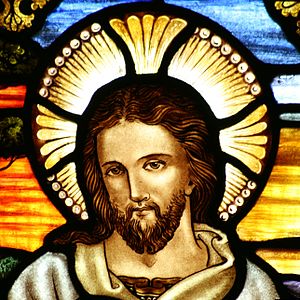Some months ago I wrote a post entitled Introduction to the Minor Prophets, but my post did not live up to the title. In it I talked about Elijah as one of the important non-writing prophets and about how Moses filled the office of a prophet, but I never really got to the minor prophets. I hope this post is more organized than the original one.
There are several categories of prophets: non-writing prophets and writing prophets, major prophets and minor prophets. Some prophets were also judges or priests. Samuel was a judge and a prophet. Miriam was the sister of Moses and she was a prophet. Deborah, the only female judge, was also a prophet Some examples of non-writing prophets are Elijah, Elisha, and Nathan.
Of the writing prophets, the only distinction between Major and Minor prophets is the volume of prophesies they wrote. There are four Major prophets: Isaiah, Jeremiah, Ezekiel, and Daniel. There are twelve Minor prophets: Hosea, Joel, Amos, Obadiah, Jonah, Micah, Nahum, Habakkuk, Zephaniah, Haggai, Zechariah, and Malachi.
The writings of the Minor prophets were no less inspired or important than those of the Major prophets, but they may not have covered as long a period. Their message may have addressed one issue or time period, but it was recorded and preserved. The messages of the Minor prophets come from different period in the history of Israel. Prophesies are referred to as the pre-exile prophets, the prophets in exile, and the post-exile prophets. The messages of the pre-exile prophets tell of the coming judgment. The messages of the prophets in exile are intended to strengthen the Israelites to endure. The messages of the post-exile prophets call for return to righteousness. The two prophesies written during the exile are Daniel and parts of Isaiah.
Several of the prophesies are written to different nations.
Hosea prophesied to Ephriam whose capital was Samaria. Ephriam was part of the Northern Kingdom of Israel.
Joel prophesied to Judah, but included Phonesia and Philistia.
Amos prophesied mostly to Israel, but he also included the surrounding countries.
Obadiah prophesied to Edom of destruction because they were destructive to the Children of Israel.
Jonah prophesied to the city of Ninevah in Assyria.
Micah prophesied to Samaria, Israel, Judah, and Jerusalem about the evil in them.
Nahum prophesied to Ninevah in Assyria. Because of their repentance, the city had not been destroyed when Jonah prophesied, but this time they did not repent.
Habakkuk prophesied to Judah after the fall of Israel and their deportation.
Zephaniah prophesied to Judah and the nations surrounding her.
Three prophets prophesied to Judah and Jerusalem after the exile: Haggai called the people back to the Lord and stressed the Messianic theme.
Zechariah was also a priest. He called for a return to obedience especially in matters of justice, mercy, and compassion.
Malachi stressed the faithfulness of God toward his people and their lack of faithfulness toward him. He called them to repentance.
Many of these books are short and easy to read. Spend a few minutes gleaning treasures from them.
Introduction to the Minor Prophets
Also see:
Go Marry a Prostitute a commentary on the book of Hosea
The Just Shall Live by Faith a commentary on the book of Habakkuk
 Image via Wikipedia Lawyers seem to have a real affinity for eye witness testimony even though all the tests and evaluations seem to indicate that eye witness are not usually very accurate. If five people witness an accident, they will give very different accounts of the events. And yet we still believe what the eye witnesses say.
Image via Wikipedia Lawyers seem to have a real affinity for eye witness testimony even though all the tests and evaluations seem to indicate that eye witness are not usually very accurate. If five people witness an accident, they will give very different accounts of the events. And yet we still believe what the eye witnesses say.